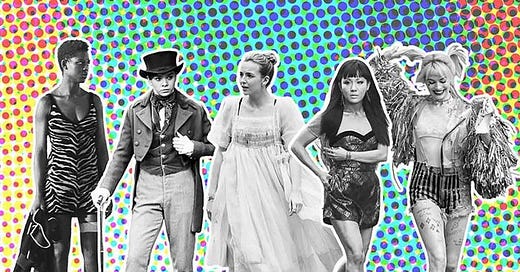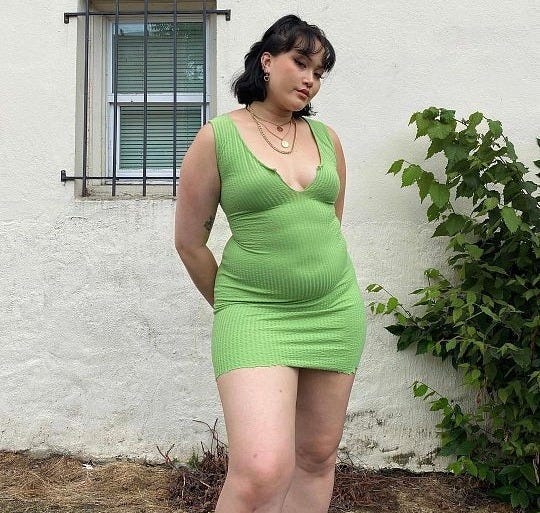Is Feminist Fashion Just A Utopian Fantasy?
Our empowered fashion choices might secretly just be internalised male gaze.
The fashion industry has been juggling with allegations of elitism, sexism, classism and racism for a long time now. The feminist denomination within the industry has tried various avant-garde styles and designs in the hopes of making fashion more inclusive and sustainable. One of these attempts gave birth to the concept of “men-repellant clothing.”
On social media, it probably started with the audio that trended for a very long time called “how to dress to attract a man”, with the women doing exactly the opposite of what was being instructed. Clothing meant to ridicule and reject the male gaze by going the opposite way— makes sense, right?
But there was one voice of criticism that couldn't be contained. Rebellion against the male gaze by actively fighting it, is still prioritising it. What feminists should actually be establishing is the decentering of the male gaze. By taking into consideration what men would or would not like, we are still talking about the male gaze. A flawless argument, and indeed a voice to reckon with. But then arises the question: How exactly should women dress?
Dressing in a Patriarchy
There's a broad way to classify women's clothing from the "male gaze" perspective: modest, bold and male-repellant. Their commonalities include: centring the male gaze and ironically, also fighting allegations of being anti-feminist because while the wearer of each of these sees it as a form of a feminist choice, it does centre the male gaze.
Wearers of modest fashion, be it the niqab or hijab all the way to white women's “old money aesthetic,” believe they're respecting their bodies by not making it accessible to any men other than their partners. Bold fashionistas believe they're wearing what makes them happy and has nothing to do with the male gaze. They're rebelling against the patriarchy by denouncing purity culture. Being able to make a choice that prioritises their individual contentment is feminist to them. And a happy woman couldn't possibly be a patriarchal concept, after all. And the male-repellant style represents the active dislike of the male gaze, and is thus centred around displeasing men with clothes that most men are repulsed by. This is a form of rebellion. Repelling men, like actively fighting the male gaze off of you, is, in a way, the most feminist it could get. Thus, in some way or another, all of the abovementioned clothing categories can be feminist if worn with that intent. This is a way of reclaiming our clothes and our bodies from an oppressive gaze, thus rooted in resistance and a subsequent liberation.
Yet all of the above are anti-feminist as well. Modest clothing is basically covering up everything a man finds attractive in a woman, which in a way infantalises men, as it allows them the extra liberty to sexualise women, while stripping the woman of her basic right to make an autonomous and personal decision about her body. It also allows for the objectification of women, reducing them to the “private property” of men who “own” them.
Bold clothing allows for an easy objectification and sexualisation of women's bodies and sexualities, because it spoon feeds the male gaze. Bold clothing is also ableist, fatphobia and transphobic as “sexy” clothes are only acceptable and beautiful when worn by able-bodied, white/light-skinned, skinny cisgender women. Another else wearing it is deemed vulgar, cheap, desperate etc. It's exclusionary nature makes it anti-feminist.
And male-repellent clothing, although most feminist among the three mentioned choices, is basically prioritising the male gaze and opinions while sidelining the woman's preferences. Making it your entire wardrobe is basically seating the male gaze in your closet. All these arguments are fair and valid, yet again.
I empathise with the concept of male-repellant fashion, though. If gaze were the biggest threat to women, the world would be a much safer place for us. It starts with the gaze, which then leads to way worse, way more annoying in the least and dangerous at the worst, kind of things. Male-repellant fashion aims to nip it in the bud by averting the gaze itself or giving it reason to be uninterested, repulsed, disgusted, etc. Once you've fought the gaze away, you're relatively freer to go about your day unbothered. I'd be decentering men more if I put on a male-repellant outfit, because now the only time I am thinking about them is when I was planning the outfit; as opposed to either choices of wearing modest or bold clothing, where every time a man looks weirdly at me, I would feel the urge to wonder if uncovering or covering up more could've made things easier. Male repellant clothing is also deliberately not pretty. If we actually saw more of such obscure fashion in public, we as a society would be encouraged to think beyond the conventions of looks and beauty, forcing us to dig deeper. But that needs to be done en masse for it to work.
Sadly, women are wired to always think about the male gaze anyway. I can't help but notice if men are looking at me; if they are, in what kind of way? Do they look shocked, intrigued, interested or lustful? What part of me are they looking at? If they aren't looking, I wonder, gleefully now and offensively when I was younger, what it is about my outfit that is making me invisible to them. Yes, I used to take it offensively (as a minor?!) if I wasn't creepily stared at, as I used to unsettlingly crave that attention, internalising the lustful attention of adult, perverted men as a form of validation.
Exploring the Male Gaze
Personally speaking, the male gaze cannot be boxed as definitively as pop culture likes to think. If the internet has taught us anything, it is that men are a very heterogeneous group and almost everything a woman does or wears or likes is liked and/or sexualised by some or the other sections of men somewhere on the planet. Sometimes even things other men do, or animals do, or trees do. “Men” as a category can probably like and fück anything you put in front of them. This is usually determined by the way the patriarchy conditioned them. Different cultures sexualise different things. While a saree can be a pretty modest attire in the Indian context, a culture too used to or completely unfamiliar with crop tops will view the saree as “provocative.” So, should we just tackle the patriarchy of our own regions then? Works, until you post yourself on the internet and men all over the world view you from a multicultural lens.
My point is, there's no real way to fight the male gaze. You can't possibly upset ALL men with what you wear. and even if you do, you're still prioritising every single man's opinion before your own, and that is literally patriarchy cooked and served. So, should we just give in to it? Wear what men like and please them? Firstly, very anti-feminist; secondly, we've been doing that for centuries, and that's what got us here today; and thirdly, even that's impossible. You can't wear something that every single man will like, either. So, should we just prioritise what we like wearing then?
The Way Out
Ah, now we've reached the climax of my essay. Technically, totally. But what do we women want? To repel men, to dress feminist, to simply enjoy the outfit, or all of the above? If we take the simplest route, all we want is to enjoy the outfit. Now, what does enjoying the outfit even mean? And, as women, have we achieved such a feminist form of enjoyment that has absolutely nothing to do with men and the male gaze at all? I love wearing dresses, but I hate having to shave my legs every time I wear one, which lowers my overall preference for the dress. I hate wearing kurtis because I’ve just worn too many of them growing up, but they're very convenient and effortless, and I enjoy the convenience. My point? Enjoying an outfit is subjective, even when the affecting factors are constant. I can like something yet not enjoy it based on when, where and how I'm wearing it. and there are times our preference for an outfit is dictated by the patriarchy. Like when I feel insecure about sleeveless tops despite finding them gorgeous when skinnier women wear them. That's a patriarchal reason to not enjoy something I would otherwise enjoy. So yes, it does boil down to individual choice and preference, but with a twist of intentional feminist intervention.
Love dresses but hate to shave? Wear the dress without shaving. Love sleeveless blouses, but are insecure about your arms? Rock sleeveless blouses confidently. This is what is being referred to as the “female gaze” in pop culture. Most of the fashion advice given in media, like “wear vertical stripes to appear thinner,” or “don't wear dresses if you have a tummy”, is dripping in misogyny and teaching us the male gaze in the garb of the art of fashion. Defying these and learning to view your body by the beauty your body has to offer, rather than trying to conform to the dominant, racist beauty standards of your time, is feminist. Ask yourself “why” more often. Why can't I wear that top now that I've gone one cup size bigger? Why do I need to line my lips if they're thin? The key is to truly know and understand why you like certain clothes over others and learning to define beauty in a way that can accommodate you and your beauty, without asking you to hide or be ashamed of yourself. That is, what I call, feminist fashion.
Meanwhile, the fashion industry needs to remake clothes from a feminist perspective. The first low-neck blouse was created, and I am almost fully sure, because men would enjoy the view. A low neck doesn't necessarily have anything productive or objectively beautiful or uniquely fun about it unless you view it from the male gaze. And they feed off of each other. Tomorrow, if the fashion industry popularises a cutout along the most random body part, say the elbow, men will find ways to sexualise it and ruin that for the girls too.
There's a reason why men's clothing is so repetitive, unlike women's. Different men from different cultures find different things attractive, and with the vast rise of globalisation and the internet, each designer is working on ways to satisfy the male gaze's latest obsession in their culture, making the possibility of innovation go wild. While women, too, have their likes and dislikes, but:
Most often, no one cares what the "female gaze" likes and
The female gaze is not uniform even throughout one culture because these preferences are mainly informed by dominant social structures like history, religion, etc., within which women have historically always been marginalised.
Thus, women rely on personal preferences, and what the patriarchy allows them to like, like dad bods, old men, man-children, etc. In contrast, the female counterpart of all these rather normalised male tropes remains heavily villainised among men and the dominant media. Only recently have we seen a rise of colours in men's attire, more flamboyance, etc., due to pop culture commercialising female, black and gay subcultures.
The solution, thus, is to know what you like and why you like it. Prioritise that choice only if it is genuinely personal; debunk and restructure it if it is just internalised misogyny or classism or casteism, or racism, etc. Redefine beauty. No clothes are out of limits to anyone because everybody deserves to feel beautiful & liberated.
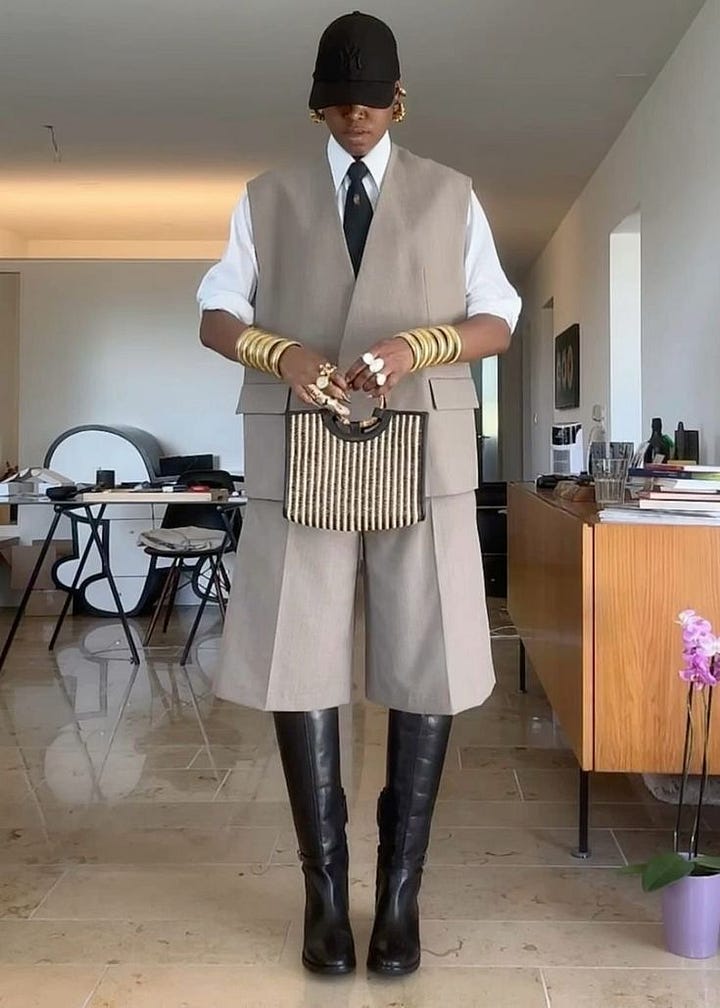
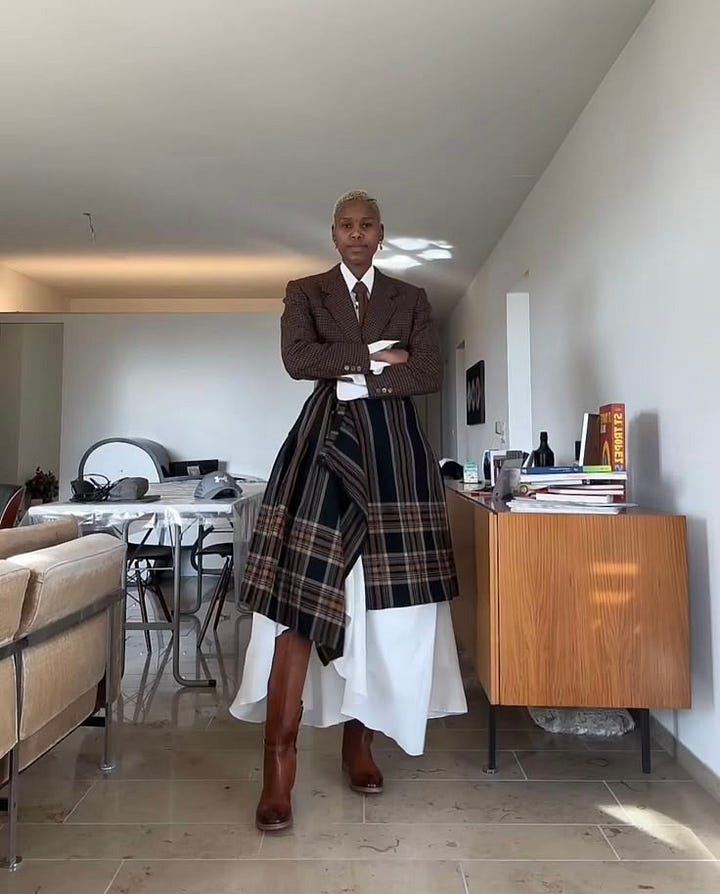
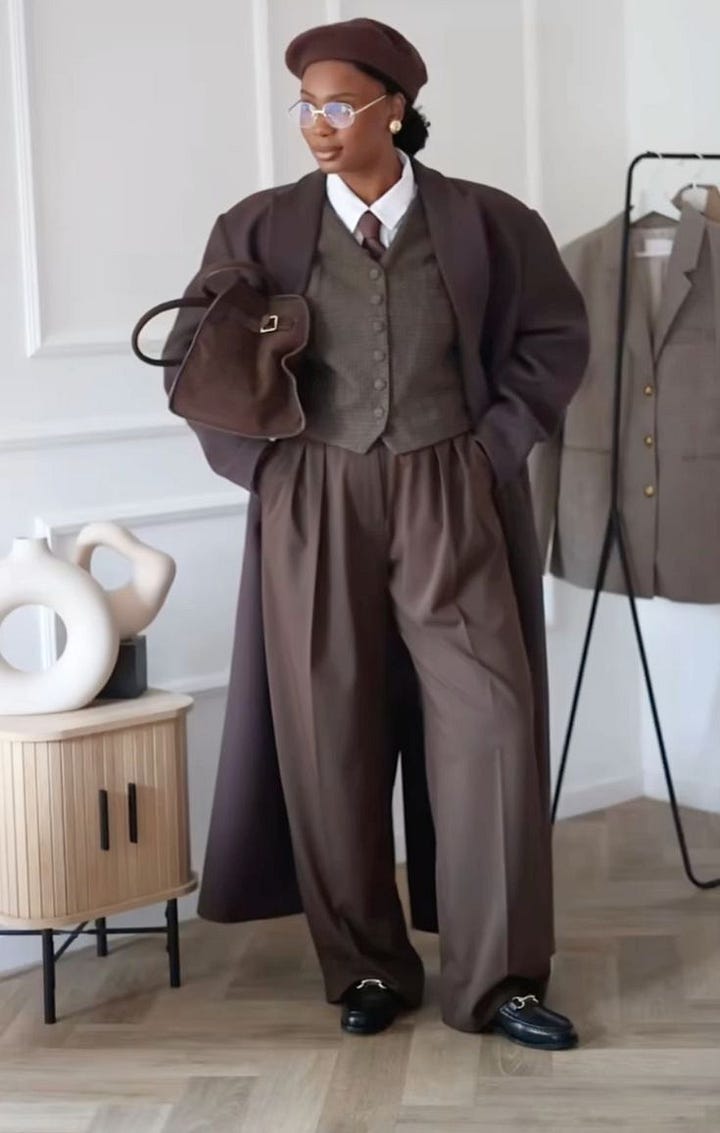
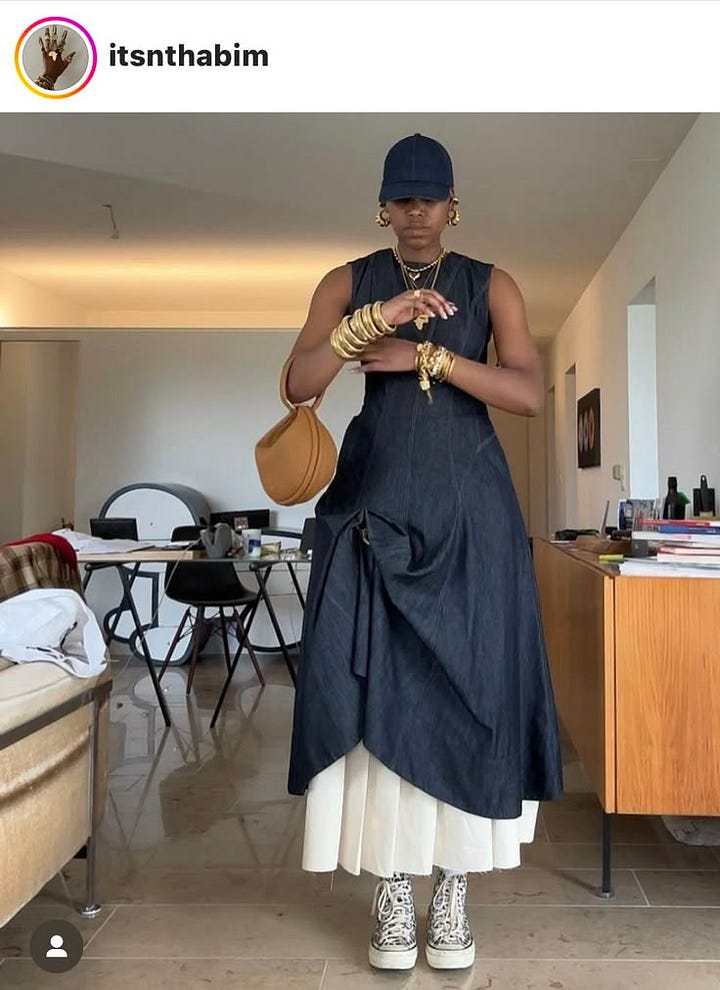
Feminism, unlike what it seems in this hyper-consumerist, capitalist culture, is actually a very personal journey of unlearning the patriarchal ways of the world that are deeply ingrained in us, and rethinking it from a truly personal, intersectional feminist gaze. It is an internal journey that requires more battles with yourself than with anyone else, as the hardest man to defeat is the man that lives within each one of us— one that speaks to us in the voice of our own mothers, aunts, fathers, brothers, society, men, etc. To me, feminism is way more than a mere academic philosophy; it is a lifestyle. And that is how we should all see it, rather than finding ways to glorify every choice any woman makes, calling it a feminist choice. Feminism shouldn't be an afterthought, but rather the foundation of the choices we make as women, because when we finally start centring women, do we recreate a world where women can hold centre stage undisturbed.
The Gal Gala is gearing towards the release of the 2nd edition of The Galsight Magazine. To feature your experiences in the magazine, reply to the prompt question here. Find all details attached in the link!


